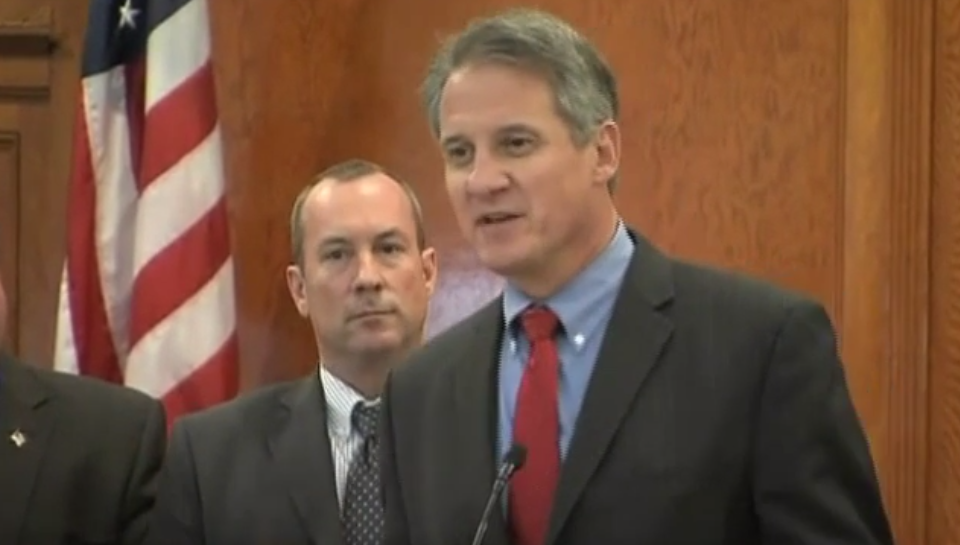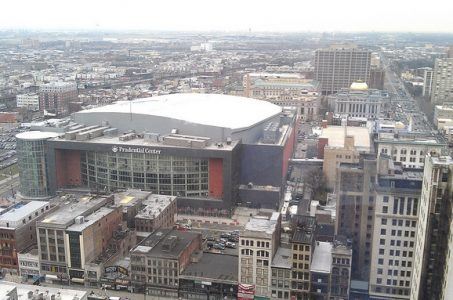Volleys Continue in War Between Mohegan Sun and Wynn for Massachusetts
Posted on: February 20, 2014, 05:30h.
Last updated on: June 13, 2022, 10:06h.

Don’t you just love a good squabble? The rivalry between the two casino groups vying for the coveted license to build a resort in Massachusetts took on a new dimension recently, as the Mohegan Sun offered sharp criticism of its competitor, Wynn Resorts.
Etess Takes on Wynn
Mitchell Etess, chief executive of the Mohegan Tribal Gaming Authority, which seeks to develop a casino on 42 acres of land at the Suffolk Downs racetrack in Revere, told media sources that billionaire casino mogul Steve Wynn had petitioned state offices for numerous dispensations relating to taxes and environmental regulations for his own casino project. The Mohegan Sun proposal, Etess noted, would thus be realized more quickly and be compliant with existing state regulations. Should Wynn not receive his allowances, warned Etess, Wynn Resorts could be forced to abandon the project entirely.
“Unlike Wynn, our commitment is not contingent on anything,” the Mohegan Sun CEO said. “We’re ready. We don’t need changes in the law.”
It looks like Mohegan Sun’s decision to step up the war of words is a reaction to Wynn’s scathing address to the Massachusetts Gaming Commission last month. While Etess used that platform to concentrate solely on the strengths of his own proposal, Wynn, looking relaxed and speaking without a script, openly mocked the Mohegan Sun bid, stating that the $1.2 billion four-star Wynn resort would dwarf its “three-star” competitor.
Wynn’s hotel rooms would be double the size of Mohegan Sun’s, and more luxurious, the iconic casino magnate said. Perhaps more controversially, Wynn also claimed that the Mohegan Sun had a tax incentive to drive customers away from Massachusetts to its flagship casino in Connecticut.
“We’re their worst nightmare,” he said. “They don’t want us paying 25 percent of tax on table winnings when they pay nothing in Connecticut … If Wynn Resorts is selected, we have only one interest – this casino in Massachusetts. We don’t give a damn about Connecticut.”
It’s a claim that Etess strongly refutes, stating that Mohegan Sun has a legal duty to its financial partner Brigade Capital Management not to favor one casino over the other. Etess also laid into Wynn for wanting to build on a former chemical site, at Everett on the outskirts of Boston, which must be decontaminated first, a fact that will further delay the operation.
Tax Rate Debates
He was also critical of Wynn’s recommendations – previously presented to the Gambling Commission – in which he suggested that the long-standing state law that customers must pay tax on winnings over $600 – a threshold Wynn says is too low – should be changed, and that commercial casinos should pay state tax equal to that of tribal casinos.
“Because we participated in the gaming act’s creation and noted the careful deliberation with which the Legislature used to craft it, [Mohegan Sun] does not think that the gaming act needs any major legislative changes to be successful,” said Etess.
The descent into tit-for-tat recriminations is the latest twist in a long-running saga that has already seen one bidder – Caesars – pull out of the process following a $100 million campaign, and subsequently file a lawsuit against the Gambling Commission. But despite voter rejection and a mounting campaign to repeal the 2011 law to legalize gambling in Massachusetts, securing a license to operate here remains a hugely lucrative prospect. And with only one license up for grabs, neither party is likely to back down anytime soon.
Related News Articles
DFS Antagonist Eric Schneiderman Attacks Donald Trump’s Charity
Newark Casino Proposed by New Jersey Developer
Maine Lawmakers Narrowly Reject State Tribal Casino Proposal
Most Popular
LOST VEGAS: The Foster Brooks Robot at MGM Grand
Bally’s Sets Date for Tropicana Las Vegas Implosion & Party
Most Commented
-
VEGAS MYTHS RE-BUSTED: You Don’t Have to Pay Resort Fees
— August 2, 2024 — 16 Comments -
VEGAS MYTHS RE-BUSTED: Elvis Was a Straight-Up Racist
— August 9, 2024 — 11 Comments -
ANTI-SOCIAL BEHAVIOR: Vegas Casino Buffet Stunt in Poor Taste Goes Viral
— August 16, 2024 — 7 Comments -
VEGAS MYTHS RE-BUSTED: The Strip Tried Appealing to Families and Failed
— August 23, 2024 — 7 Comments















